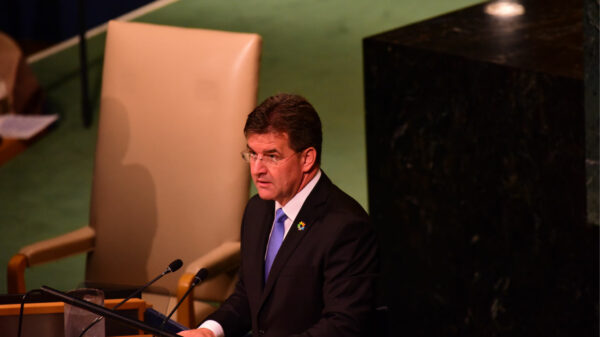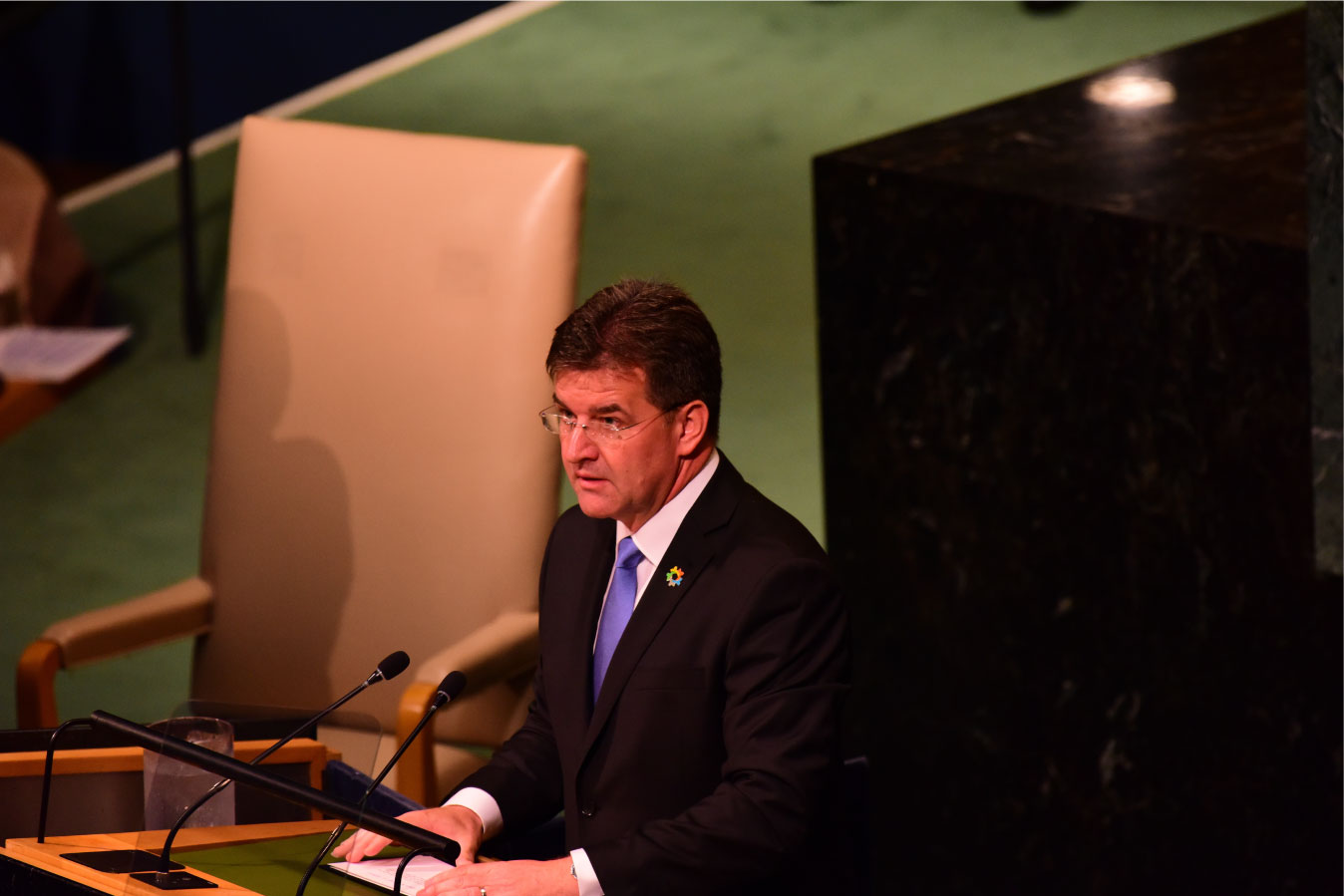Miroslav Lajcak has been the EU Special Representative for the Belgrade-Pristina Dialogue and Other Western Balkan Issues since 2020. After more than four years, during which he dealt mainly with the normalization of relations between Kosovo and Serbia, his tenure will conclude at the end of January 2025.
Since Kaja Kallas was elected as the High Representative for Foreign Affairs and Security Policy in July 2024, rumors have been circulating about Lajcak’s potential successor. Multiple names have been circulating in Brussels, including the former President and Prime Minister of Slovenia, Borut Pahor; the former foreign minister of Finland, Pekka Haavisto; and Peter Sorensen, the Danish diplomat.
Ultimately, Pahor chose not to apply for the position, clearing the path for the remaining two contenders, Haavisto and Sorensen, with the latter emerging as the frontrunner.
Borut Pahor: A leading contender withdraws from the race
Even before Lajcak’s mandate was extended in July 2024 for another six months, former Borut Pahor officially expressed interest in succeeding Lajcak. This announcement came as a surprise since Lajcak’s initial appointment in 2020 was not the result of an open application process; but rather a selection based on EU member states’ recommendation.
This time, the position was open for applications through the European External Action Service (EEAS).
Pahor is an experienced politician with extensive knowledge of the Western Balkan region. Slovenia's geographic proximity and its shared history as part of the former Yugoslavia further enhance Pahor’s ability to address the political and cultural complexities in the Dialogue. Moreover, he comes from a country that has recognized Kosovo, while maintaining a good relationship with Serbia. He also speaks Serbian, the official language of both Serbia and Kosovo.
However, despite his qualifications, Pahor’s candidacy was sidelined for three primary reasons. First, his relationship with the EU during his last presidential term had seriously deteriorated. Slovenia was often accused of rule-of-law violations and illiberalism, compared with Poland and Hungary. Second, Pahor’s involvement in the 2021 non-paper, advocating the peaceful break-up of Bosnia and Herzegovina and ethnic-based border revisions in the Western Balkans was poorly received in the EU. And third, the EU seemed to prefer a diplomat over a politician for the special envoy position.
Considering these challenges, Pahor decided not to apply for this role, citing disagreements with the current EU enlargement policy.
Pekka Haavisto and Peter Sorensen: Two Nordic Contenders Reach the Final Stage
While Pahor was hoping for an invitation from Brussels, the EEAS was considering other options, namely, Pekka Haavisto, the former Foreign Minister of Finland, and Peter Sorensen, a career diplomat from Denmark.
At first glance, Haavisto and Sorenson might not seem as qualified as Pahor for this role. However, it appears the EU prefers a neutral envoy with unquestionable authority to mediate the dialogue process. This approach seeks to avoid a scenario similar to that of Lajcak who on multiple occasions, mainly by Kosovo, was accused of bias in the negotiations.
Pekka Haavisto, a veteran politician, has served multiple mandates in the Finnish Parliament and held three ministerial roles, including Minister for Foreign Affairs. He also ran for the Finnish presidency three times, finishing second in each race.
Given the previous involvement of the former President of Finland, Martti Ahtisaari, in resolving the Kosovo status process from 2005 to 2008, Haavisto appeared as a strong contender. However, he was also considered for the role of UN Special Coordinator for the Middle East Peace Process, which might have influenced the EU’s decision.
Similar to Pahor, Haavisto is more of a politician than a professional diplomat, which may have contributed to the EU excluding him from further consideration.
In contrast, Peter Sorensen’s extensive diplomatic career and lack of political involvement positioned him as the frontrunner in the selection process. Sorensen has served in various international organizations, including the UN and the EU.
Furthermore, Sorensen familiarity with the Western Balkan region further strengthens his candidacy. He has previously served as the EU Special Representative for Bosnia and Herzegovina and as Head of the EU Delegation in North Macedonia. He also served as Senior Adviser to the Special Representative of the UN Secretary-General and Head of UNMIK in Pristina (2002-2006), as well as the EU High Representative's Personal Representative in Belgrade (2009-2011).
These roles, combined with his deep familiarity with the Western Balkans, appear to have influenced the EU’s decision to officially nominate Sorensen for the position of EUSR. His nomination is expected to be finalized by the end of January, contingent on the agreement of all EU member states.
Sorensen Emerges as the Favorite
If confirmed, Sorensen will take on the EUSR role at a critical moment. Relations between Belgrade and Pristina remain at a historic low, with tensions continuing to linger. Furthermore, the Kosovo-Serbia Agreement on Normalization of Relations (e.g. Ohrid Agreement), reached in Ohrid, North Macedonia, approaches its second anniversary with minimal progress achieved.
Amid a hostile geopolitical climate and the transition to a new Trump administration, the incoming envoy faces the pressing task of addressing deeply strained ties between the parties involved. The Ohrid Agreement risks slipping into irrelevance without decisive action, making the envoy’s role both urgent and complex.
The upcoming envoy will need to balance assertive diplomacy with strategic patience, fostering trust among stakeholders while mitigating external pressures. Success in this mission will depend heavily on the backing of the EU to reinvigorate the normalization process and bring the Dialogue back on track.
In just a few days, the EU is expected to formalize the appointment of its envoy for the Dialogue, marking the beginning of a new phase. All eyes are now on Sorensen, whose role will be critical in shaping the direction and outcomes of the Kosovo-Serbia Dialogue.



























































